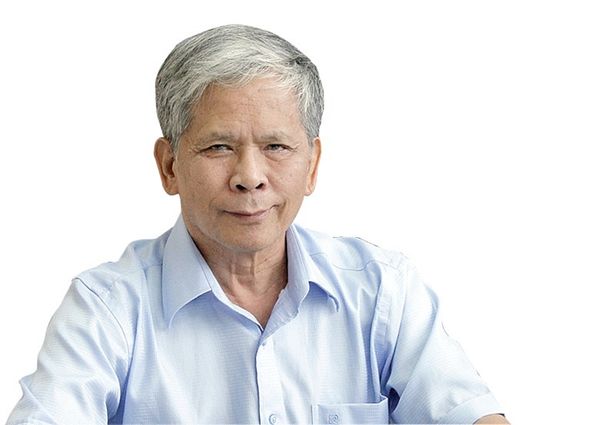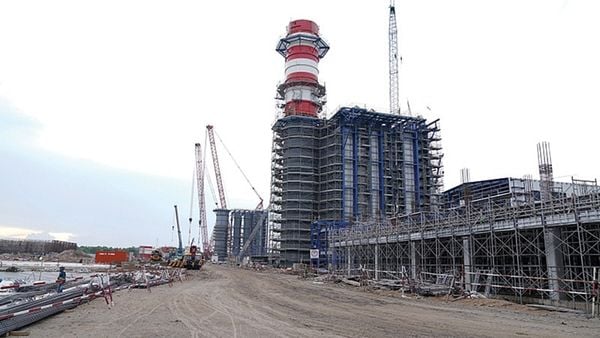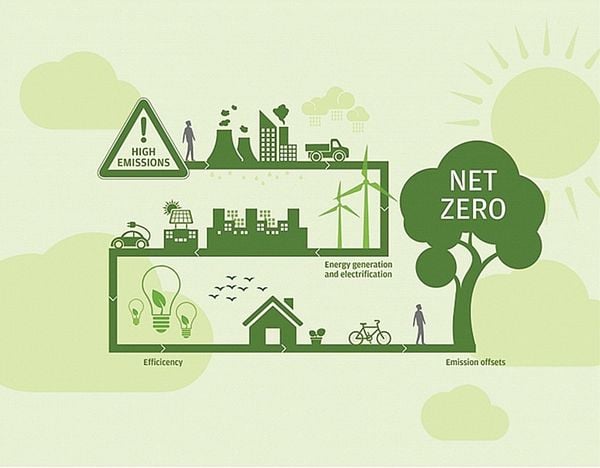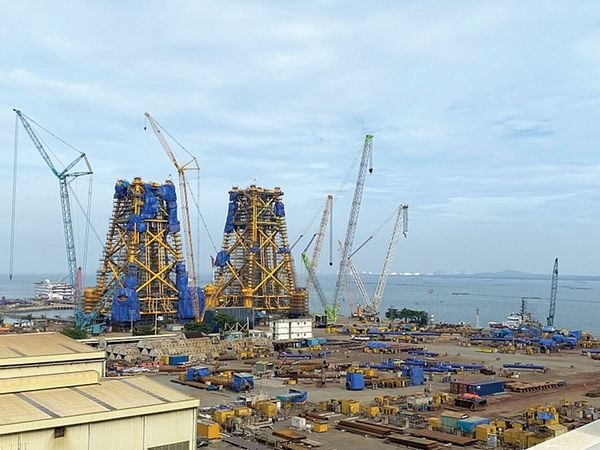Towards Net Zero - Turn awareness into action
In this interview, we will explore the advantages and challenges that Vietnam is facing on its journey to the Net Zero goal by 2050, through the strategic perspective of Assoc. Prof. Dr. Le Huy Ba.

Assoc. Prof. Dr. Le Huy Ba (Photo: PetroTimes)
Assoc. Prof. Dr. Le Huy Ba: The first clear advantage we can see is that the government is very concerned and has implemented it vigorously. Since COP26, we have made international commitments, many programs, action plans, scientific workshops, etc., have been deployed to find specific solutions towards Net Zero by 2050. This is the right direction of the government, in line with the world's development trend.
The second advantage is that we have a team of leaders in science and technology who are quite knowledgeable about Net Zero. This is an important foundation for successful implementation of related policies and programs.
However, on the other hand, we also have many challenges. The awareness of Net Zero is not high, and even now, many people still do not understand what Net Zero is. Therefore, actions towards the goal are only emerging in a small number and have not spread widely throughout society. With many programs, workshops, conferences on Net Zero being communicated through various media channels, it is hoped that awareness of Net Zero will improve soon.
Next is the issue of investment. To move towards Net Zero, we need to boldly eliminate old, highly emitting production technologies and replace them with modern, environmentally friendly technologies. For example, in the VIII Power Plan, there will be no more coal and hydropower development in the future, replaced by solar and wind power...
In my opinion, the core issue is that to move towards Net Zero, we need to strongly develop renewable energy to replace fossil energy. However, the mechanisms and policies of the state regarding renewable energy, clean energy still have many obstacles, are not attractive to large foreign investors to participate, and do not encourage conditions for domestic businesses to develop.
We have over 3,000km of coastline, which is a huge potential for Net Zero through the development of offshore wind power. Ninh Thuan, Binh Thuan have the potential for strong wind power, but for some reasons related to people and the mechanism of electricity prices into the national grid, it is still not favorable and attractive to investors. Not only wind power, in the field of waste-to-energy, LNG power, the electricity price mechanism is still a major obstacle.

Nhon Trach 3, 4 Power Plant project using LNG (Photo: PetroTimes)
Interviewer: What is the significance of establishing a carbon credit market in our country in the journey towards Net Zero, sir?
Assoc. Prof. Dr. Le Huy Ba: The Prime Minister has assigned greenhouse gas emission reduction targets for sectors such as energy, transportation, agriculture, waste management... and assigned greenhouse gas absorption targets for the forestry sector.
Our country has "golden forests, silver seas," and forests, in particular, have the potential to generate many carbon credits. Selling forest carbon credits will help increase income for businesses through revenue from emission reduction results. Forest owners and local people will improve forest planting productivity, improve livelihoods, contribute to protecting existing forest areas, and increase coverage.
Developing the carbon market in Vietnam will contribute to achieving the goal of reducing greenhouse gas emissions with low costs for businesses and society, promoting the development of low-emission technologies, enhancing the competitiveness of Vietnamese businesses, aiming for a low-carbon economy, and proactively responding to climate change.
Looking back over the past 10 years, we have traded carbon credits at very high prices, I remember about $40 USD/credit, but now for some reason, the price is very low while the world market is just beginning to heat up. This also indicates that we need to build a comprehensive market roadmap and not just follow trends.
Voluntary carbon credit markets in Vietnam are also in the process of development. Some businesses have launched the first carbon credit trading platforms. With the current deployment progress, it is hoped that the carbon credit market will officially operate in 2028 as planned.

(Photo: J.P. Morgan)
Interviewer: Businesses must contribute to offsetting their own emissions during the production process. Shouldn't we have mandatory, tightly controlled regulations, sir?
Assoc. Prof. Dr. Le Huy Ba: If businesses emit waste, they must have the responsibility to collect and treat that waste. That is the principle. But we haven't done it completely. For example, we have had a waste classification program at the source for 7-8 years, but until now, it hasn't progressed much despite the significant budget spent.
In 2022, the government issued Decree 06/2022/NĐ-CP regulating the reduction of greenhouse gas emissions and ozone protection. Accordingly, enterprises, especially those in the textile and footwear industry, must carry out the responsibility of inventorying greenhouse gases. By 2026, businesses are required to implement emission reduction measures according to the plan, to comply with the allocated emission quotas.
We need such emission control policies, and we must implement them resolutely to achieve the Prime Minister's commitment to Net Zero by 2050.

PTSC manufacturing offshore wind turbine foundation components for Taiwan at PTSC Vung Tau Port (Photo: PetroTimes)
Interviewer: What else do we need to achieve the Net Zero goal by 2050?
Assoc. Prof. Dr. Le Huy Ba: Firstly, we need mechanisms and policies to attract strong investment in the renewable energy sector. This is an area where we have many conditions for development but have not been able to unleash, especially in the offshore electricity sector. Recently, the Vietnam Oil and Gas Group (Petrovietnam) has a offshore wind power project in collaboration with Singapore to export electricity to Singapore. This is an important starting point towards the development of offshore wind power in Vietnam in the coming time.
Secondly, awareness and perception are important. Therefore, the promotion of Net Zero needs to be intensified for people to understand deeply and perceive, thereby accompanying and implementing. In particular, businesses need to have a clear understanding to build programs, avoiding confusion in production...
We still have a lot of work to do to ensure the Prime Minister's commitment to Net Zero by 2050. For the green transformation campaign to be effective and successful, we need to transfer the concepts and urgency of green development, green transformation into the daily lives of people, into the business philosophy of each enterprise, to raise awareness and turn awareness into specific actions.
Interviewer: Thank you, sir!
Author: Le Truc
Article source: PetroTimes

